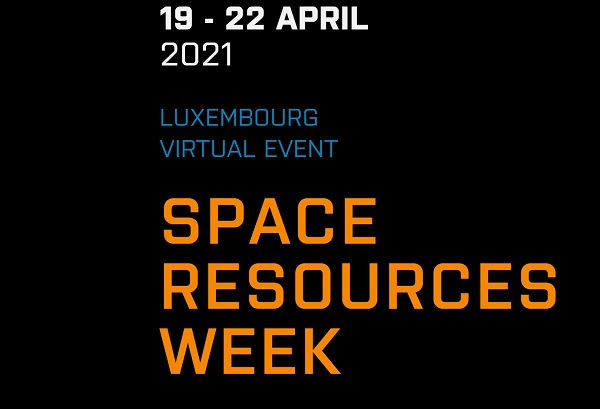
As well as being Earth Day, last Thursday marked the end of the Space Resources Week organised in Luxembourg.
Over four days, more than 1,000 participants tuned in from 66 different countries to listen to and interact with 124 speakers and hundreds of hours of online discussions; a lucky few even had the chance to engage in face-to-face discussion.
The community mobilised around the subject of space resources continues to grow and expand, an explicit sign of the growing interest in the issue.
Having become one of Luxembourg's national priorities with the Spaceresources.lu initiative in 2016, the field of space resources is now covered by the programmes of many national space agencies and has a prominent place in the agenda of the European Space Agency ( ESA).
The experts gathered during Space Resources Week were unanimous: the sector is evolving at a particularly impressive speed from a technological and scientific point of view, but “Space is an Adventure” and there are many grey areas still to be explored. Understanding the specificities of asteroids, the behaviour of matter in a low-gravity environment, the nature of lunar resources... There is no lack of fundamental questions to be clarified and the scientific community seems determined to provide answers. This gives full meaning to the newly created European Space Resources Innovation Centre (ESRIC) in Luxembourg, which is already mobilised to create a community and centralised management platform for knowledge in the field.
The experts added that it remains to promote the construction of bridges between the space sector and the "terrestrial" sector. Collaborations with the mining industry, for example, could be beneficial for all. Feedback on the extraction and processing of minerals or on the management of high-risk investments for some, development of markets or innovative technological approaches for others: the potential benefits of collaborating are many and should compensate for the lack of data or in-situ technological demonstrations.
On the regulatory side, the community was also unanimous: a common position and an international framework favourable to the involvement of private actors will be one of the necessary steps to allow the space resources sector to continue its development at full speed.
Between now and the next edition of Space Resources Week, scheduled for spring 2022, the community will meet at the various events announced for the coming months. Such events include the launch of the ESRIC start-up support programme and the ESA-ESRIC Space Resources challenge, the first European robotics challenge dedicated to space resources and aimed at identifying prospecting technologies that could be used during future ESA missions.
All recordings of the conference will be available on the event website: www.spaceresourcesweek.lu.








